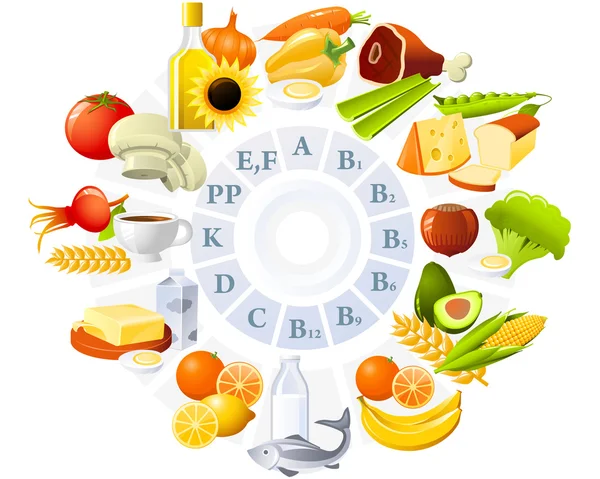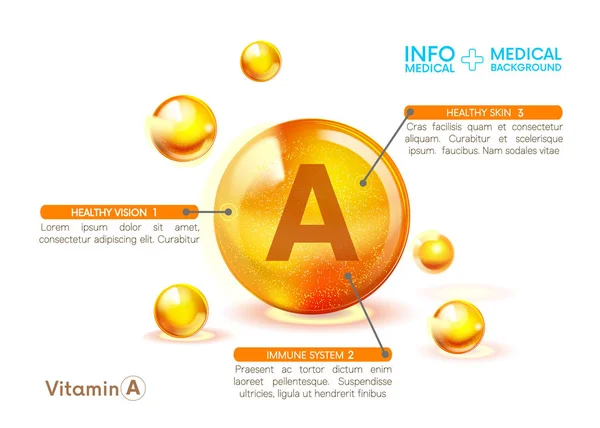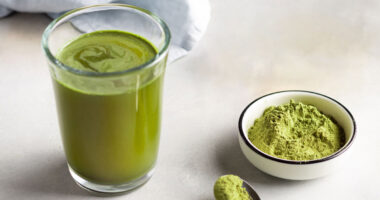Do you know “Eat These Vitamin A Rich Foods” is important To Improve your Eyesight If You Use a Phone Everyday? In our modern digital age, our lives are intertwined with screens. Whether it’s for work, entertainment, or socializing, we spend hours each day staring at screens, be it our phones, tablets, or computers. While these devices have undoubtedly improved our lives in many ways, they also come with a downside – increased screen time can take a toll on our eyesight. Fortunately, there are steps we can take to counteract the strain and potential damage caused by excessive screen use. One effective approach is to incorporate Vitamin A rich foods into our diet, as they play a crucial role in maintaining and enhancing our eyesight.
Table of Contents
- 1 Understanding the Impact of Prolonged Screen Time on Eyesight
- 2 The Role of Vitamin A in Eye Health
- 3 Incorporating Vitamin A Rich Foods into Your Diet
- 3.1 1. Carrots – A Classic Source of Vitamin A
- 3.2 2. Sweet Potatoes – Nutrient-Packed Tubers
- 3.3 3. Spinach – Leafy Greens for Brighter Eyes
- 3.4 4. Kale – A Nutrient-Packed Superfood
- 3.5 5. Eggs – Versatile and Nutrient-Rich
- 3.6 6. Mangoes – A Tropical Delight
- 3.7 7. Cod Liver Oil – A Potent Source
- 3.8 8. Pumpkin – Fall’s Nutrient-Rich Gem
- 3.9 9. Apricots – Tiny Fruits, Big Benefits
- 3.10 10. Red Bell Peppers – Colorful and Nutrient-Packed
- 4 Balancing Your Diet for Optimal Eye Health
- 5 Conclusion
Understanding the Impact of Prolonged Screen Time on Eyesight

Before we delve into the specific foods that can bolster our eye health, it’s essential to grasp the adverse effects of prolonged screen time on our vision. Long hours spent peering at screens can lead to a variety of eye-related problems, collectively known as “digital eye strain” or “computer vision syndrome.” Some common symptoms of this condition include:
- Eye Fatigue: Prolonged screen exposure can cause eye muscles to become fatigued, resulting in discomfort and a heavy feeling in the eyes.
- Dry Eyes: Frequent blinking reduces when using digital devices, leading to inadequate moisture on the eye’s surface, causing dryness and irritation.
- Blurred Vision: Extended screen time can cause temporary blurry vision and difficulty focusing on objects at different distances.
- Headaches: Strain on the eyes often leads to headaches, which can be debilitating.
- Sleep Disruption: The blue light emitted by screens can interfere with our circadian rhythm, making it harder to fall asleep.
Given these potential consequences, it’s imperative to take proactive measures to protect our eyes. One such measure is to ensure our diet includes a sufficient amount of Vitamin A.
The Role of Vitamin A in Eye Health

Vitamin A is a fat-soluble vitamin that exists in various forms, with the most active one being retinol. It is renowned for its indispensable role in maintaining good vision and overall eye health. The following are some of the vital functions that Vitamin A performs for our eyes:
- Retina Function: Vitamin A is a key component of the retina’s photoreceptor cells, called rods and cones, which are responsible for capturing and processing light. This is essential for good night vision and color vision.
- Protection Against Night Blindness: A deficiency in Vitamin A can lead to a condition known as night blindness, making it difficult to see in low-light conditions.
- Prevention of Dry Eyes: Vitamin A helps in maintaining the mucous membranes of the eyes, preventing dryness and irritation.
- Supporting the Cornea: The cornea, the outermost layer of the eye, relies on Vitamin A for maintenance and repair.
- Immune Function: Vitamin A also plays a role in maintaining the health of our immune system, which indirectly contributes to eye health.
With these critical functions in mind, it’s evident that ensuring an adequate intake of Vitamin A is essential for safeguarding our eyes, particularly in a digital age where screen time is ever-increasing.
Incorporating Vitamin A Rich Foods into Your Diet

Now that we understand the significance of Vitamin A for eye health, let’s explore a variety of foods rich in this essential nutrient. Incorporating these foods into your daily diet can go a long way in improving and preserving your eyesight, especially if you use your phone or other digital devices extensively.
1. Carrots – A Classic Source of Vitamin A
Carrots, with their vibrant orange hue, are perhaps the most iconic Vitamin A-rich food. They contain beta-carotene, a precursor to Vitamin A, which the body readily converts. This conversion is particularly efficient, making carrots an excellent choice for enhancing your eye health. Snacking on raw carrots or adding them to salads can be a tasty way to increase your Vitamin A intake.
2. Sweet Potatoes – Nutrient-Packed Tubers
Sweet potatoes are another fantastic source of beta-carotene. These tubers not only provide you with a healthy dose of Vitamin A but also offer other essential nutrients like fiber and potassium. Baking or roasting sweet potatoes can bring out their natural sweetness and make them a delightful addition to your meals.
3. Spinach – Leafy Greens for Brighter Eyes
Leafy greens like spinach are a treasure trove of nutrients, including Vitamin A. Moreover, they contain lutein and zeaxanthin, two antioxidants that support eye health by filtering harmful high-energy light waves like ultraviolet rays. Incorporate spinach into your diet through salads, smoothies, or as a side dish.
4. Kale – A Nutrient-Packed Superfood
Kale is often hailed as a superfood due to its exceptional nutrient density. It boasts an impressive amount of Vitamin A, along with a host of other vitamins and minerals. Kale can be enjoyed in various ways, from kale chips to sautéed kale as a side dish.
5. Eggs – Versatile and Nutrient-Rich
Eggs are a versatile food that contains not only Vitamin A but also other eye-friendly nutrients like lutein and zeaxanthin. Whether you prefer them scrambled, poached, or as part of a frittata, eggs can be a valuable addition to your diet for maintaining good eyesight.
6. Mangoes – A Tropical Delight
Mangoes, with their sweet and juicy flesh, are not only a delightful tropical fruit but also a rich source of Vitamin A. The bright orange color of mangoes hints at their beta-carotene content, making them a tasty way to boost your eye health.
7. Cod Liver Oil – A Potent Source
While not everyone’s favorite, cod liver oil deserves a mention as one of the most concentrated sources of Vitamin A available. A single teaspoon can provide your daily recommended intake of Vitamin A. If you can tolerate the taste, it’s a potent supplement to your diet.
8. Pumpkin – Fall’s Nutrient-Rich Gem
Pumpkin, a staple of autumn cuisine, is another excellent source of beta-carotene and Vitamin A. Whether you use it in soups, pies, or simply roast the seeds for a crunchy snack, incorporating pumpkin into your diet can be a seasonal treat for your eyes.
9. Apricots – Tiny Fruits, Big Benefits
Apricots are small but mighty when it comes to their Vitamin A content. These fruits provide a burst of sweetness along with essential nutrients. Dried apricots make for a convenient, on-the-go snack to support your eye health.
10. Red Bell Peppers – Colorful and Nutrient-Packed
Red bell peppers not only add vibrant color to your dishes but also deliver a generous dose of Vitamin A. They can be sliced and enjoyed with hummus or incorporated into stir-fries and salads for a delightful crunch and added eye benefits.
Balancing Your Diet for Optimal Eye Health
While these foods can significantly enhance your Vitamin A intake, it’s essential to maintain a balanced diet overall. A varied and nutritious diet provides your eyes with a wide array of nutrients they need to function optimally. Here are a few additional dietary tips to consider for maintaining good eye health:
- Include Omega-3 Fatty Acids: Foods rich in omega-3 fatty acids, like fatty fish (salmon, mackerel, and trout) and flaxseeds, can support eye health by reducing the risk of dry eyes and age-related macular degeneration (AMD).
- Stay Hydrated: Proper hydration is crucial for maintaining the mucous membranes in your eyes. Drink an adequate amount of water throughout the day to prevent dry eyes.
- Limit Screen Time: While diet plays a vital role in eye health, it’s equally important to reduce prolonged screen time. Follow the 20-20-20 rule: every 20 minutes, take a 20-second break, and look at something 20 feet away to reduce eye strain.
- Regular Eye Exams: Schedule regular eye check-ups with an optometrist or ophthalmologist to monitor your eye health and address any emerging issues promptly.
Conclusion
In a world where our daily lives are increasingly digital, safeguarding our eyesight is of paramount importance. Incorporating Vitamin A rich foods into our diet is a simple yet effective way to support and enhance our eye health. From carrots and sweet potatoes to spinach and cod liver oil, there are a variety of options to choose from, ensuring you maintain optimal vision even if you use your phone or other digital devices extensively. Remember that a balanced diet, proper hydration, and periodic eye check-ups are all crucial components of maintaining healthy eyes in the digital age. So, make these dietary changes today to see a brighter and clearer tomorrow.









